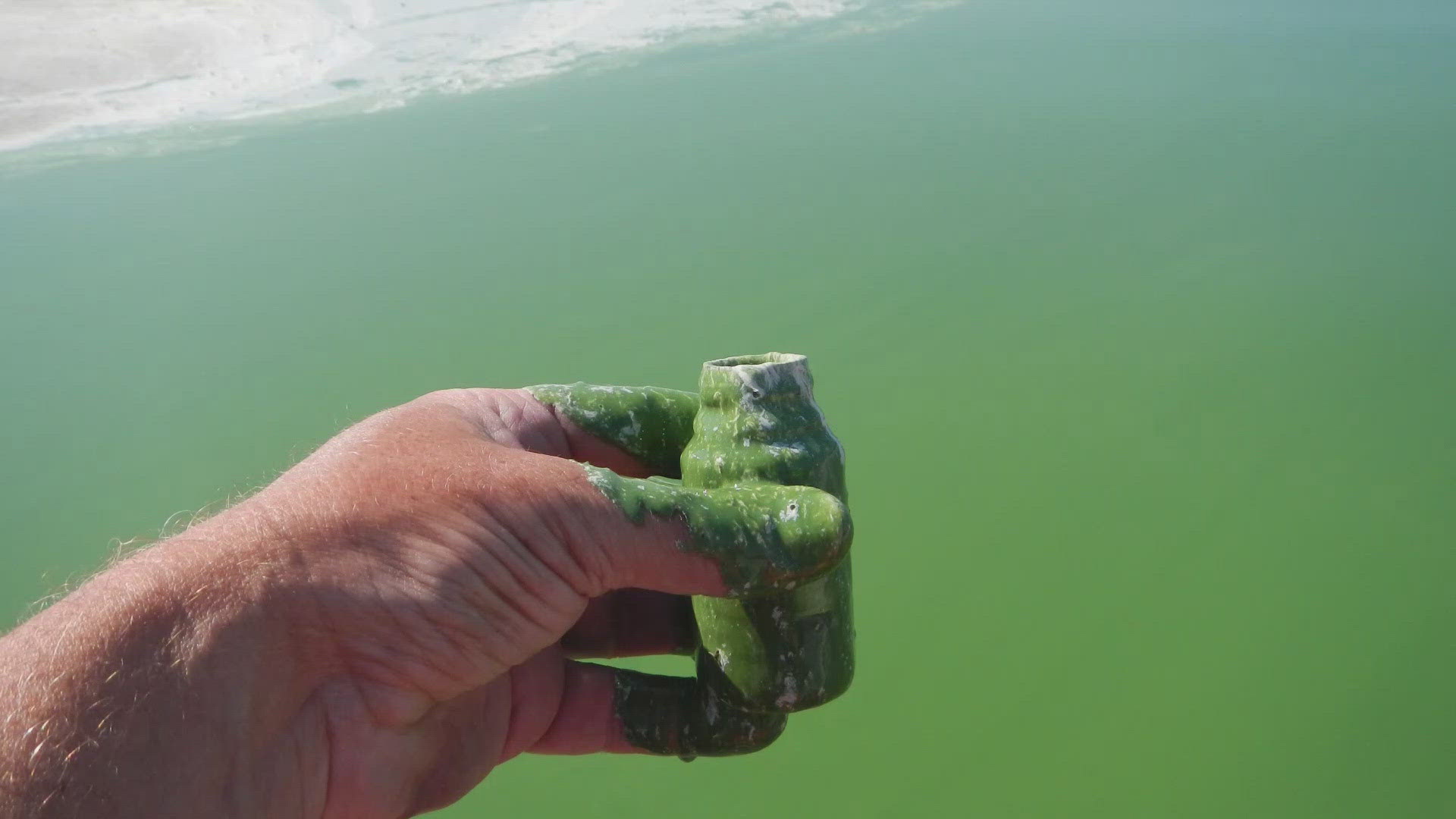CHINA, Maine — More lakes in Maine are being impacted by potentially toxic algae blooms, according to the Maine Department of Environmental Protection.
"There are about 30 lakes in the state that routinely support algae blooms," state lake biologist Linda Bacon said. "Over the last 10 or so years, a few new ones have popped up, and we attribute those new bloomers for the most part to climate change."
Bacon said aspects of climate change that are fueling the blooms include warmer and shorter winters, which allow more time for algae-causing bacteria called cyanobacteria to grow.
"One cell may be able to divide four times within 24 hours," she explained. "Many years ago, we generally thought of them as dividing maybe once a day. As you can imagine, populations can take right off."
Algae in lakes will grow in proportion to the amount of phosphorus in a lake. It's a prime nutrient in fertilizers that Bacon said is necessary for life.
She added, the algae are capable of producing toxins, which can be harmful to humans and animals.
One lake in Maine with a high level of phosphorus is China Lake.
Phosphorus has been entering the lake because of runoff and erosion exacerbated by Maine's changing climate, according to China Lake Association Vice President Eric Lind.
"The fear is, at any moment, anything could push this lake into a nuisance bloom or a harmful bloom," Lind told NEWS CENTER Maine.
The Maine DEP classifies algae blooms in lakes and ponds as either a nuisance algae bloom when water clarity is 6.6 feet or less and a harmful bloom when clarity is at or below 3.3 feet.
Lind said the lake association and other partners received about $100,000 from a federal grant, which will be used to reduce the amount of phosphorus entering the lake.
"We are going to hold a buffer workshop," he said. "Buffers are just as they sound: a buffer. It's plants, shrubs, and grasses planted around the lake."
The plan is to provide landowners on China Lake with plants and help to build buffers to prevent erosion, a main way phosphorus enters water, Lind explained.
Less than 10 miles away in Augusta, Togas Pond is also battling algae blooms. There, a chemical treatment of aluminum sulfate was spread across the body of water in April.
The treatment prevents the spread of algae by binding with phosphorus. It's an effective solution that's too expansive for China Lake, which is much larger than Togas Pond.
Bacon said it's not all bad news when it comes to these spreading blooms in Maine.
"Fortunately, most of our lakes are still in real good condition," she said. "We have an awesome opportunity to protect them."

